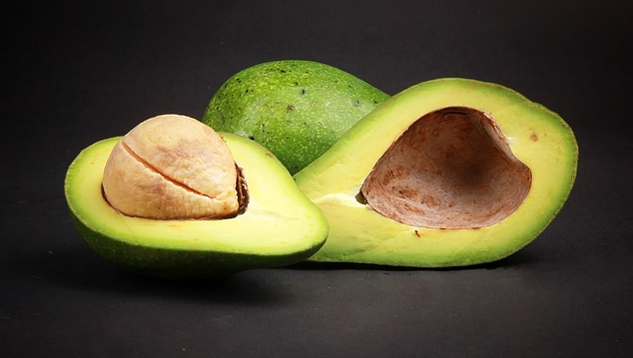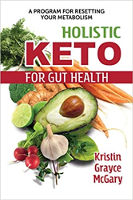
Image by endri yana yana
We need a steady source of fuel for our bodies to run efficiently. Simple carbohydrates (sugars, starches, and grains) burn quickly and don’t last. They also cause spikes in insulin. All carbohydrates are converted into glucose, and the irregular spikes in insulin and blood sugar stress the body.
By contrast, complex carbohydrates from vegetables and certain fruit sources are metabolized more efficiently and smoothly by the body. (I highly recommend two books by Stephen D. Phinney and Jeff S. Volek: The Art and Science of Low Carbohydrate Living and The Art and Science of Low Carbohydrate Performance.)
The body can only store 2,000 kilocalories of carbohydrates as glycogen in your muscles. Once consumed, it’s gone until the metabolic pantry can be restocked. When glycogen stores are consumed, you experience what many athletes refer to as “bonking”—a sudden collapse of energy. If you get cranky or tired when you miss a meal, now you know why. You’ve “bonked.” Conversely, fat cells have a large capacity for storage, and fat contains nine kilocalories per gram. The body can thus store and use more than 40,000 kilocalories as fat!
Fats = Long-Term Energy; Carbs = Short-Term
You know you can get a burst of energy from carbohydrates—and you also have felt that it doesn’t last. During prolonged exercise, when the body’s carbohydrates stored as glycogen are being depleted, there is increasing dependence on the liver to maintain blood glucose levels. This is not just to provide the exercising muscles with glucose but also to support other normal body functions, particularly those of the central nervous system.
Vigorous exercise depletes glycogen reserves in a few hours. Diets with an emphasis on carbohydrates bias the metabolism toward carbs, while inhibiting fat metabolism and utilization. But when the metabolic system is tuned to primarily burn fat, there are several days’ worth of fuel available. Consider our Neanderthal ancestors. If a hunter’s only hope of eating in the coming months is to track a herd of woolly mammoths for days with no snacks available, would he choose a source of long-lasting energy or a source that would only give him short spurts? And if a saber-toothed tiger were chasing him, wouldn’t he prefer to outrun it without bonking?
As a biology major and pre-med student, I was taught that the brain runs on glucose. But guess what? In actual fact, the brain runs as much as 25 percent better on fat, in the form of ketones! There are only a few parts of your brain that need glucose, and this can be converted from ketones. Too much glucose can, in fact, be damaging to the brain.
The journal Medical Hypothesis published an interesting article outlining that HC (high-carbohydrate) foods are the primary cause of Alzheimer’s disease (AD). There are two mechanisms by which this occurs. First is the inhibition of membrane proteins such as glucose transporters and the amyloid precursor protein, which occurs because of disturbances in lipid metabolism in the central nervous system. Second is damage to cerebral neurons by prolonged and increased insulin signaling. This naturally points to nutritional changes, primarily carbohydrate decreases or restriction, while increasing essential fatty acids (EFA), as a feasible prevention strategy. That’s correct: diet can prevent and treat Alzheimer’s disease.
Your Brain = 60% Saturated Fat, 25% Cholesterol
Your brain is 60 percent saturated fat, and 25 percent of the brain consists of cholesterol. A ketogenic diet includes lots of fat—including healthy saturated fat—in the form of organic, unrefined coconut oil and duck and lamb fat. Trust me, your brain, hair, skin, nails, immune system, and heart will thank you! Coconut contains lauric acid, which has strong antiviral and antifungal properties and is also an immune system builder. Unsaturated fats such as olive oil lower total blood cholesterol, “bad” LDL cholesterol, and triglycerides while at the same time supporting levels of “good” HDL cholesterol, which plays a protective role in the body.
Serotonin receptors in the brain also need cholesterol, because it counters depression. In The Vegetarian Myth, author Lierre Keith cites an interesting double-blind study done by a British researcher on a psychologically healthy group of people who were not under any stress. All meals eaten during the study were supplied by the researchers. One group’s diet was 41 percent fat-based and the other contained only 25 percent fat. After a period of time, the researchers switched the groups, so the low-fat dieters ate the high-fat diet, and vice versa.
Each volunteer in the study underwent thorough psychological testing before and after each trial. The results? While ratings of anger-hostility slightly declined during the high-fat diet period, they significantly increased during the low-fat, high-carbohydrate diet period. Similarly, ratings of depression declined slightly during the high-fat period but increased during the low-fat period. Levels of anxiety declined during the high-fat period but did not change during the four weeks of low-fat eating.
Brain and Nerve Health = Low Carb and Healthy Fat Diet
Ketogenic diets also increase the production of BDNF (brain-derived neurotrophic factor) in the brain, which stimulates the production of neuronal stem cells and repairs neuron connections that have been damaged, potentially contributing to much-dreaded brain fog.” Your nervous system prefers fat as well, because it’s needed by the neurotransmitters in order for them to transmit signals.
The conclusion? To keep your brain healthy and to stay happy you should decrease grain-based carbohydrates and increase healthy fats.
New research also shows that high-carb foods increase the risk for heart problems. During the consumption of foods high in sugar, there appears to be a temporary and sudden dysfunction in the endothelial walls of the arteries.
Dr. Michael Schechter, a senior cardiologist and associate professor of cardiology at the Sackler Faculty of Medicine, Tel Aviv University, found enormous peaks in arterial stress in high-glycemic-index groups. “Foods like cornflakes, white bread, fries, and sweetened soda” he says. “all put undue stress on our arteries. We’ve explained for the first time how high-glycemic carbs can affect the progression of heart disease.”
Protein = Building Block for Life
Protein is the fundamental building block for life. Protein is required to build new tissue, replicate DNA, catalyze metabolic functions, transport molecules, and help create hormones, antibodies, enzymes, and other compounds. Proteins are made up of chains of amino acids, nine of which are essential. Which mean you must get them from external sources since the body can’t make them.
A “complete” protein, such as beef, has all of these essential amino acids. However, your body doesn’t need a 16-ounce or 500 g steak. Yes, we must have protein, but only in small amounts at one time—2–4 ounces or 60–120 g per serving is a healthy average, based on a person’s body size, age, and physical state. A large man may need a little more.
Unfortunately, not all protein is created equal. Vegetarian/vegan sources of protein, whether rice and beans or soy, come with serious health implications because they inhibit digestion and impair absorption. Long term, they lead to deficiencies in the human body that can take a significant toll on overall well-being.
Meat -- All Meats Are Not Created Equal
Fundamental physiological nutrient needs vary, depending upon the stage of development, gender, age, and level of fitness. The average American diet already consists of 11–22 percent dietary protein per day. Most of this protein is meat-based, and the meat itself is feedlot-raised, grain-fed, hormone and antibiotic-laden, and unsustainably raised, containing a higher bad fat content that has already been linked to disease. Compare that to the 19–35 percent recommended protein levels on the Paleo diet (consisting of vastly different kinds of protein, usually local, organic, grass-fed, and/or wild).
Another argument in the “low-protein is better” debate is the fact that several studies show that high-protein diets appear to bear a relationship to several types of cancer—in particular, colorectal cancer. And yet vegetarians and vegans are no better off than their meat-eating brethren in this regard. A large cohort study of nearly 11,000 men and women in the United Kingdom did not show a significant difference in colorectal cancer risk between vegetarians/vegans and people who ate meat.
The argument in support of the benefits of animal protein from an evolutionary perspective is compelling. Without the consumption of the protein, fat, minerals, and vitamins in meat, the human brain would have been unable to meet the energy needs required to evolve and grow over a few million years into what it is today.
“Alice” -- A Case Study
“Alice” was 29 years old. Her chief complaints were fatigue, weight gain, and bloated stomach, with bouts of gas that were uncomfortable. She also bruised easily. I did a full Traditional Chinese Medical history, asking questions about her nutrition and lifestyle. She’d been a vegetarian for eight years. She did eat cheese, craved sweets, and ate processed foods several times a week. She complained of afternoon energy crashes and reached for sweets and caffeine to make it through the day. She ate salads four times a week and loved to eat breads and pastas that helped her feel full.
Barely able to work, unable to exercise, too tired to socialize, she was feeling desperate.
I never pressure anyone into eating anything to which they are averse, but meat happened to be one of the foods that would help strengthen and build her blood. After I shared my personal vegetarian story with her, she became open to drinking bone broth. She agreed to stop gluten and dairy and eat only lightly cooked, stir-fried, and steamed vegetables and avoid salads for two months. She agreed to switch from coffee to green tea, cut back on sweets, take a short walk in nature at least twice each week, and go to bed earlier.
Within five days, her bloating and gas were gone. In two weeks, she’d lost three pounds and reported feeling lighter. In four weeks, she began to exercise and felt like she was coming back to life. On her own, she decided to eat two bites of beef, reporting that her body really liked it. She began to branch out by eating a tiny bit of fish and buffalo. I suggested enzymes to help with the digestion of the meat she was introducing, and she complied.
In two months, her energy was about 80 percent back, she’d lost almost 10 pounds, and she felt like she was on the right track.
Alice’s story is the perfect example of food as medicine. She’s still mostly a vegetarian but adds bone broth to her nutritional plan a few days a month and eats some meat one to three times a week. She is almost completely off sugar and no longer has energy crashes in the afternoon. As an added bonus, she was happy to report the return of her libido energy.
The Problem = An Unnatural Dependency on Carbs
Bottom line, meat protein is not the problem. The problem is the fact that most Westerners have developed an unnatural dependency on carbohydrates. We’ve spent our entire lives forcing our bodies to adapt to something they were never designed to adapt to. And the reason why your doctors never told you this is because most Western doctors have little to no training in nutrition. And whatever training nutritionists have is likely funded and developed by the industrial processed-food complex.
Today, food is as much about money as sustenance. Gigantic plantations of monocrop grains dependent on fossil-fuel-based fertilizers are processed and packaged or force-fed to animals in extreme confinement in vast filthy feedlots. The economic fact is that grain carbohydrates and corn-fed animals, such as beef, pork, and lamb, and grain-fed poultry, such as chicken and turkey, supply the cheapest nutrients for the highest profit. Grains provide a basic nutritional foundation and play a primary role in supporting most of the world’s population. They’re relatively inexpensive per calorie, can be grown and harvested in huge volumes, and can be stored for long periods of time. They just make good cents.
The food industry has also been developing “new food” for quite some time. Since 1990, more than 100,000 processed foods have been introduced to the market. At least a quarter of them are “nutritionally enhanced” in order to claim health-promoting properties such as “low fat,” “cholesterol free,” or “higher in calcium.” This frightening fact supports this book’s urgent move to empower and educate you to change what, how, and when you eat.
The Solution = From Carb Junkie to Fat-Burning Powerhouse
Let vegetables fill your carbohydrate needs, let fats provide energy/fuel, and use proteins as building blocks for strong, healthy tissues. Once you shift to an optimized functional ketogenic gut repair nutritional plan, it can take anywhere from three days to up to two months to convert your metabolism from carbohydrate junkie to fat-burning powerhouse.
I consider a functional ketogenic gut repair plan a therapeutic diet that can be extremely beneficial and safe for long periods of time—a diet that is especially wonderful during gut repair.
You may feel tired for a few days as you wean your body from its carbohydrate addiction. You may experience flu-like symptoms. You may have sugar cravings during the transition period. But you likely have those already. (Consider using the herb Gymnema sylvestre, commonly used to curb carbohydrate cravings and help regulate healthy blood sugar levels.) And when you crave sweets, reach for a healthy fat such as avocado, coconut butter, or raw coconut chunks
There is light at the end of the tunnel in the form of vibrant health!
Copyright 2020. All Rights Reserved.
Adapted with permission from the publsiher,
Findhorn Press, an imprint of Inner Traditions Intl.
Article Source
Book: Holistic Keto for Gut Health
Holistic Keto for Gut Health: A Program for Resetting Your Metabolism
by Kristin Grayce McGary
 Combining the best gut-healthy elements of primal, paleo, and ketogenic nutritional plans, Kristin Grayce McGary offers a one-of-a-kind approach for optimal digestive health. Unlike the traditional keto diet, which contains inflammatory foods, her science-based, functional ketogenic program emphasizes a holistic nutritional and lifestyle plan to repair your gut while avoiding the dangers of gluten, dairy, soy, starches, sugars, chemicals, and pesticides. She reveals how nearly everyone has some degree of gut damage and explains how this impacts your immune function, energy levels, and many health issues.
Combining the best gut-healthy elements of primal, paleo, and ketogenic nutritional plans, Kristin Grayce McGary offers a one-of-a-kind approach for optimal digestive health. Unlike the traditional keto diet, which contains inflammatory foods, her science-based, functional ketogenic program emphasizes a holistic nutritional and lifestyle plan to repair your gut while avoiding the dangers of gluten, dairy, soy, starches, sugars, chemicals, and pesticides. She reveals how nearly everyone has some degree of gut damage and explains how this impacts your immune function, energy levels, and many health issues.
Click here for more info and/or to order this paperback book. Also available in a Kindle edition and as an Audiobook.
About the Author
 Kristin Grayce McGary LAc., MAc., CFMP®, CSTcert, CLP is a highly sought-after health and lifestyle alchemist. She is renowned for reversing annoying and debilitating health conditions and helping people to live with clarity and vitality.
Kristin Grayce McGary LAc., MAc., CFMP®, CSTcert, CLP is a highly sought-after health and lifestyle alchemist. She is renowned for reversing annoying and debilitating health conditions and helping people to live with clarity and vitality.
Kristin Grayce is also a speaker and author of Ketogenic Cure; Heal Your Gut, Heal Your Life. KristinGrayceMcGary.com/



























